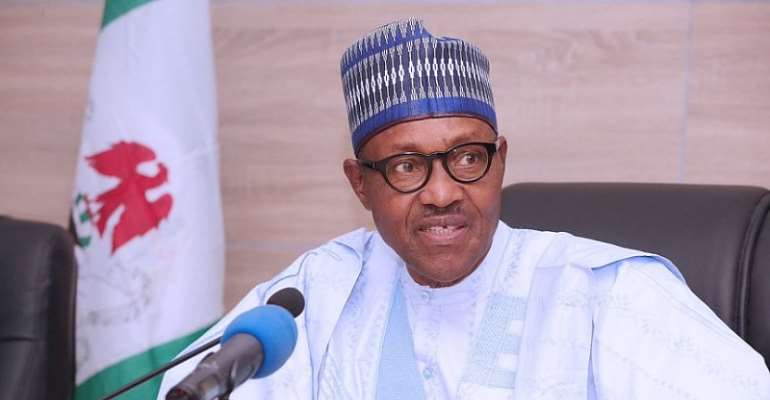Buhari’s Reelection And Matters Arising

PRESIDENTIAL candidate of All Progressives Congress, President Muhammadu Buhari polled 15,191,847 votes to defeat his closest rival, Atiku Abubakar of the Peoples’ Democratic Party who got 11,262,978 ballots in the 2019 presidential poll. Resultantly, Buhari was declared President-elect by the umpire accordingly. The poll ran concurrently with the Senate and House of Representatives. By implications, Buhari’s ‘Next-Level’ package gathers momentum.
Ultimately, masses solemnly look forward to succour particularly flourishingly socioeconomic activities, infrastructural development and employment opportunities in the next four years vis-à-vis ‘Next-level’ mantra. Relatedly, a moment ago, President Buhari lucidly pledged to work harder in the next administration, unfortunately, misconstrued earlier for toughish times. Sensibly, the overwhelming trust masses reposed by the reelection cannot be taken for granted, thus, their welfare, and good policies that will manifestly impact lives; invariable and inexcusable.
Essentially, politics in Nigeria has subconsciously undergone a paradigm shift, leaving some powerful political dynasties in unforgettable shocks; overpoweringly flattened by peoples’ franchise. Money-politics too got heavy punches. Hopefully, future elections in the county may begin to epitomize merit and a level playing ground. Why? Scores of self-acclaimed ‘deciders’ were knocked out of the ring; synchronizing Kingsley Moghalu’s catchphrase “retiring the old political-class”.
Beyond that, a baffling account is the trajectory of PDP votes from return of democracy in 1999. For emphasis, prior to the introduction of Smart Card-Readers for accreditation, PDP had in 1999 - 18.7million votes; 2003 – 24.4million; 2007 – 24.6million, and finally in 2011 - 22.5million votes. Eventually, when Card-Reader was introduced for digital accreditation, PDP votes suddenly dropped to 12.8million in 2015. In the recent election, PDP recorded 11.2million votes. The hard question is how come the high figures PDP persistently obtained before the advent of Card-Readers? Could it imply that schemers abysmally, persistently allocated figures with impunity for such gargantuan discrepancies? The avalanches obviously have big question marks. Sadly, court affirmed the elections.
On the other hand, Buhari maintained average of 12million votes before the introduction of Card-Readers. Subsequent to the merger that birthed APC and increased Buhari’s numerical strength; via Card-Readers, Buhari raised to 15.4million votes in 2015 to defeat Goodluck Jonathan. In the just-concluded poll, even as incumbent, Buhari maintained 15milion votes. A cursory look at Buhari’s scores logically points to consistency both prior and during Card-Reader eras. Beyond doubt, Smart Card-Reader exposed and outsmarted the old order - daylight electoral robberies.
Further indications empirically suggesting credibility of the poll include Dino Melaye’s victory whose name wouldn’t have been omitted in any lists if predetermined results (rigging) truly played out. The lawmaker won his reelection bid for the reason that democracy is a game of numbers. Probably, Melaye didn’t face the degree of heat Senate President, Bukola Saraki contended with in Kwara.
For example, Senator Saraki perceptively contended with overwhelming forces including the Minister of Information, Alhaji Lai Mohammed, leading a league of Kwara professionals and elites and then, Gbemisola Saraki; a powerful voice in the dynasty that cooperatively worked to deliver the state for her party, APC. Above all, the masses had for long been yearning for power-shift away from the Saraki political dynasty. The dynasty led by his late father, Chief Olusola Saraki, controlled Kwara politics for decades until hijacked by Bukola. Eventually, the recent political tremor knocked him out like a dream.
In Adamawa, Atiku’s home state which was overwhelmingly projected in his favour, recorded the opposite as votes were evenly divided between the two contenders. Parochially, one may hastily conclude a rigging if not meticulously weighed. Notably, the state produced the incumbent Secretary to the Government of the Federation (SGF), Mustapha Boss and Brig. Buba Marwa rtd who are highly influential figures in the state and the ruling party.
Atiku was equally an APC chieftain until he sensed uncertainty over the ruling party’s ticket against the incumbent, hence the last minute defection to PDP. Unfortunately, these prominent figures wouldn’t have abandoned the ruling party they supported for years for another party when they are key players in the administration and the party respectively.
In Chief Olusegun Obasanjo’s polling unit, the former president’s son, Olujonwo who led the Buhari Youths Organization (BYO); a strong campaign support group for Buhari’s reelection bid campaigned vigorously across the country and overseas including United States. Olujonwo severally visited, reiterated unwavering supports to President Buhari’s reelection. Hence, delivering the polling unit in favour of the ruling party cannot be misconstrued as irregularity but strategic planning and actions.
Furthermore, Godswill Akpabio, an APC chieftain and ardent supporter of Buhari’s reelection bid shockingly lost his senatorial ticket possibly as reprisal shot over Justice Walter Onnoghen’s foreign account saga against President Buhari and his ruling party. Outside that, Akpabio had overwhelming votes in 2015 while in PDP having led the state two terms as action governor.
Critically, Atiku’s grumbles against the outcome incidentally, didn’t show that INEC’s records differed from PDP agents’ accounts or compromised which would have been a fundamental flaw. Instead, Atiku merely questions how states ravaged by war could get massive votes, and that ballots in his strongholds were suspected to have been suppressed particularly Akwa-Ibom state having less than the votes in 2015. Unfortunately, the number of registered voters is never a factor in a poll but the figures that showed up for accreditation and did vote. On the two contentions; the umpire’s duties doesn’t include mobilizing voters on election days but exclusively for contestants and political parties.
To wrap up, apathy, violence and administrative challenges that affected all parties uniformly are clearly not sufficient grounds to annul an election. The postponement alone affected many voters. Appraisingly, foreign observers including the European Union (EU) and United Kingdom, without prejudice, affirmed the poll as reasonably credible, free and fair albeit identified administrative challenges against the commission for improvements in future. On these premises, peoples’ votes convincingly counted. Thus, INEC deserves commendations. Aligning with Lorie Myers, “True sportsmanship is excellence in motion”.
Umegboro is a public affairs analyst and Associate, Chartered Institute of Arbitrators (United-Kingdom). 08173184542-SMS-only.
